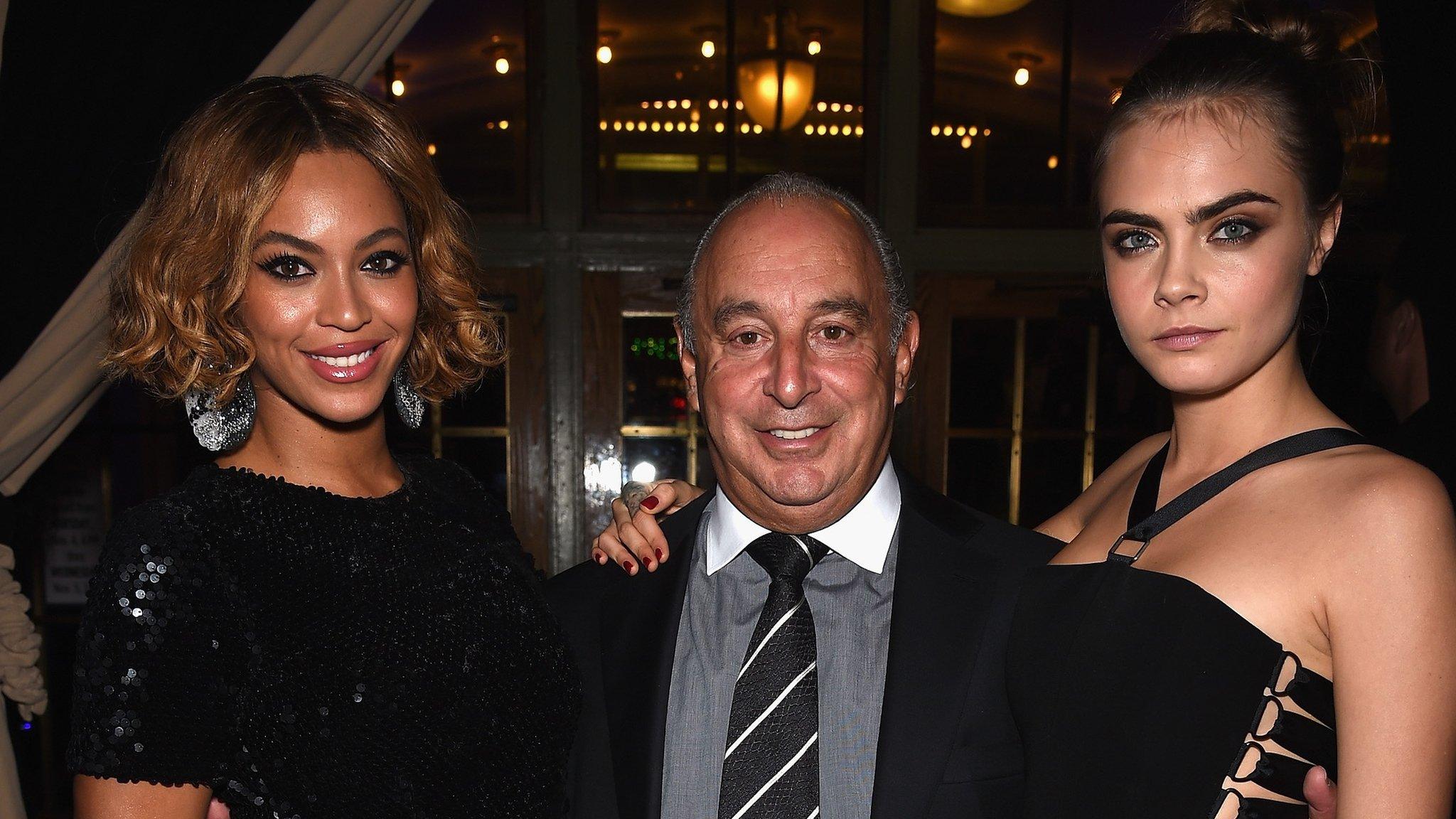Sir Philip Green: From 'king of the High Street' to 'unacceptable face of capitalism'
- Published
Monaco, models and money – who is retail mogul Sir Philip Green?
Sir Philip Green, once known as the 'King of the High Street' is facing his biggest challenge yet.
His Arcadia retail empire is teetering on the brink of collapse, the latest saga in a colourful career that once saw him branded as the "unacceptable face of capitalism".
The retail tycoon's life story to date is rich in character and anecdote, from his failed attempts to take over M&S, to a lavish lifestyle that has attracted accusations of tax avoidance.
But questions now swirl over the fate of his empire, and its 13,000 employees.
Will to win
Despite being born into a well-to-do family in south London, Sir Philip prided himself on having worked his way to the top.
His competitive streak was apparent from an early age, noticed by school mates at Carmel College, his exclusive boarding school, nicknamed the "Jewish Eton".
School friend Tony Rauch recalls Sir Philip making a beeline for the table-tennis table at break time and losing a tussle with another boy who had been trying to get the best bat.
"He got very angry; cried a little bit," Mr Rauch told BBC Radio 4's Profile programme in 2012. "He wasn't physically hurt, I think he was just very angry at having lost."
Sir Philip left school aged 15 and began working on the forecourt of the petrol station that his mother managed.
Early ventures
He then went on to learn business basics as an apprentice in a shoe warehouse. At 23 years old, he set up his own business importing and selling jeans.
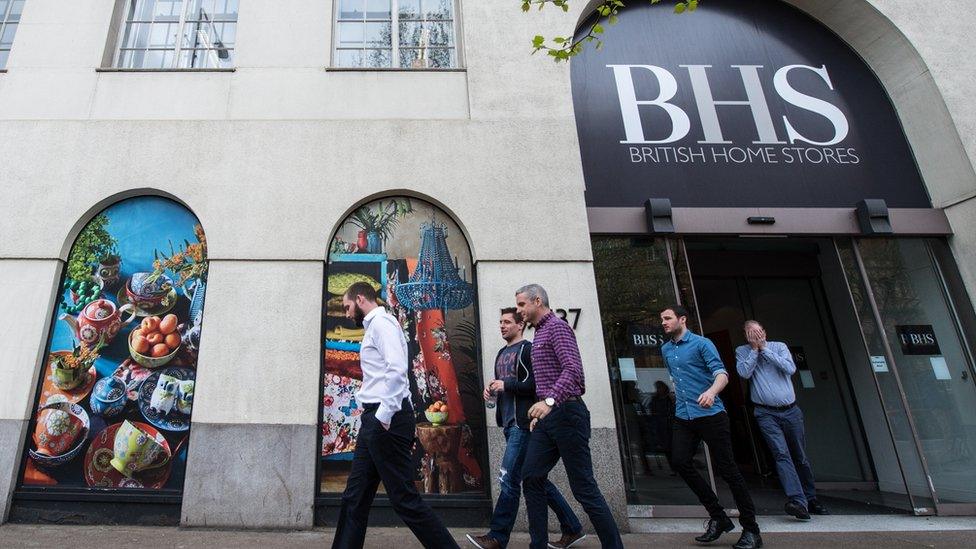
Staff leaving the BHS headquarters after being told the company would go into administration
Stuart Lansley, the author of an unauthorised biography of Sir Philip, described those early days for Radio 4.
"He had a very mixed track record of starting up companies, and closing them down, working with other people, falling out with people," said Mr Lansley.
"He travelled a lot, learning a lot about the supply chain, who the cheaper suppliers were and so on - but he certainly wasn't a household name."
It was BHS, known then as British Home Stores, that marked the moment Sir Philip Green finally "arrived" in 2000.
He paid £200m for what was already a slightly faded, dowdy chain.
"He borrowed very large sums of money, invested a little bit himself, and bought up companies that were relatively cheap, because they weren't doing very well. He turned them around, paying off his debt, and then tripling - quadrupling - the money he put in, in a matter of a couple of years," Mr Lansley said.
Two years later, he copied that model when he bought the giant retail empire Arcadia, which owns brands such as Burton, Dorothy Perkins, Miss Selfridge, and of course, Topshop and Topman.
M&S bid
Sir Philip Green's most ambitious move came in 2004, when he put together £10bn, much of it from investment banks, to make an offer for Marks and Spencer.

Even Sir Stuart Rose - then his rival and at the helm of Marks at the time - was impressed.
"Philip is not only a first-class retailer, he is absolutely pre-eminent in his generation in terms of his financial nous and ability," Sir Stuart told Profile.
"If I wanted to be slightly uncharitable, I could say that he came to the market to raise a very, very large sum of money at a time when money was cheap and freely available - but only Philip could have put that together."
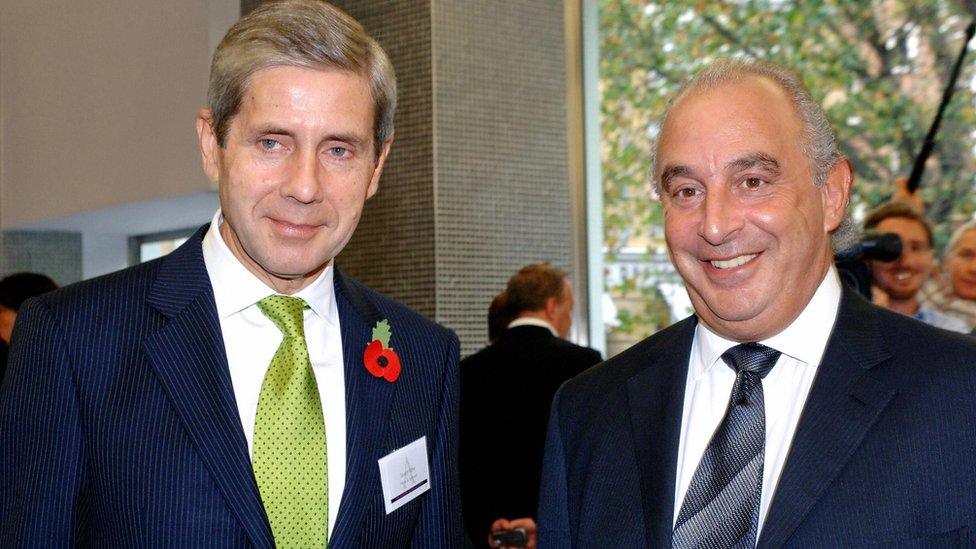
As chairman of Marks and Spencer, Sir Stuart Rose (L) faced two takeover bids from Sir Philip Green (R)
Famous temper
Sir Stuart Rose also has first-hand experience of his reportedly very short fuse. Sir Philip reportedly grabbed the then M&S boss by the lapels during his second unsuccessful takeover bid in 2004.
"There was a fairly physical occasion one morning, yes. I think tension had got quite high during the bid and Philip got upset about something," said Sir Stuart.
"He wasn't above ringing me up during the height of the bid and singing 'if I were a rich man' down the telephone to me, trying to point out the error of my ways [for not selling]... that I would make more money.
"He used to say, 'The only jet you know is Easyjet.'"
Lavish lifestyle
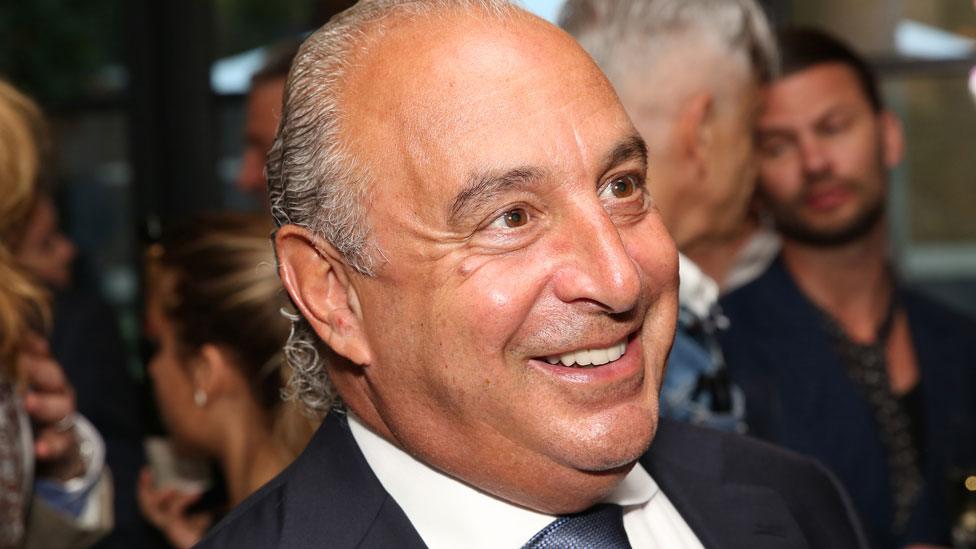
Sir Philip is not shy about enjoying the trappings of his success.
He commutes into London from Monaco in a private jet, has a super-yacht called Lionheart, and has been known for throwing extravagant parties for friends and family in exotic places, with entertainment from the likes of Beyonce and Jennifer Lopez.
What has attracted the most controversy though is not the lavish lifestyle, but his tax affairs.
In 2005, his company paid a £1.2bn dividend to the owner of Arcadia - Sir Philip's wife, Cristina. Since she is a resident of Monaco, she paid no tax in the UK.
In 2010, activists demonstrated outside the flagship Topshop and BHS stores in central London after Sir Philip was chosen by then Prime Minister David Cameron to conduct a government efficiency review.
They thought his tax arrangements made him the wrong choice. Despite their anger, however, Arcadia has paid significant sums in corporation tax.
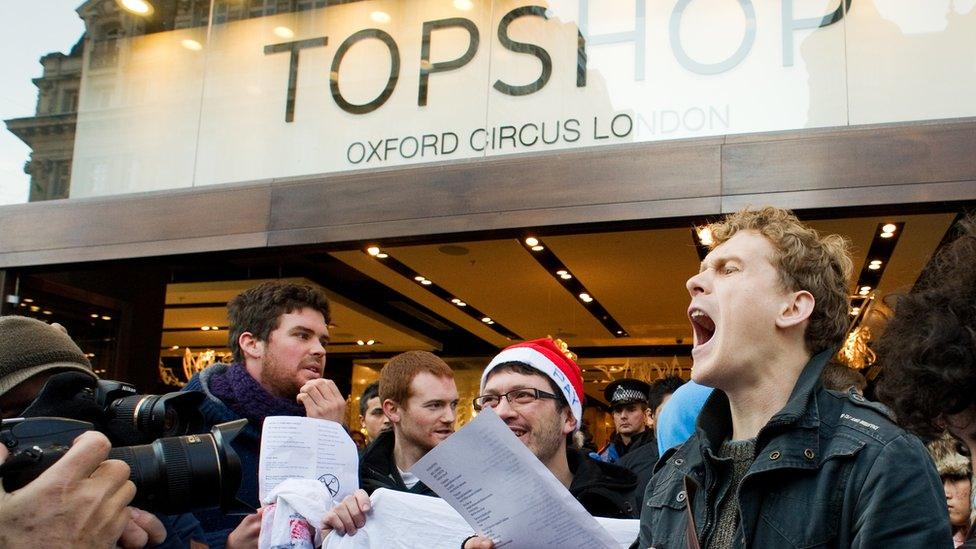
Activists targeted BHS, Topshop and Topman in 2010
But some of Arcadia's glamour has waned in recent years. Critics say that Sir Philip, reportedly averse to electronic gadgets, has not embraced online shopping as aggressively as competitors such as Asos or Boohoo.
While sales remained steady through the group, BHS was seen as the weakest link, and was sold for £1.
Questions were asked following the sale over just how much money Sir Philip had taken out of the company in the years before.
At the time, Angela Eagle, the former shadow business secretary, said: "In this situation, it appears this owner extracted hundreds of millions of pounds from the business and walked away to his favourite tax haven, leaving the Pension Protection Scheme to pick up the bill."
BHS went bust in April 2016, leaving a £571m pensions deficit.
Sir Philip agreed a £363m cash settlement with the Pensions Regulator in 2017 to plug the gap in the BHS pension scheme.

Are you an Arcadia employee? Share your experiences by emailing haveyoursay@bbc.co.uk, external.
Please include a contact number if you are willing to speak to a BBC journalist. You can also get in touch in the following ways:
WhatsApp: +44 7756 165803
Tweet: @BBC_HaveYourSay, external
Please read our terms & conditions and privacy policy
If you are reading this page and can't see the form you will need to visit the mobile version of the BBC website to submit your question or comment or you can email us at HaveYourSay@bbc.co.uk, external. Please include your name, age and location with any submission.
- Published27 November 2020
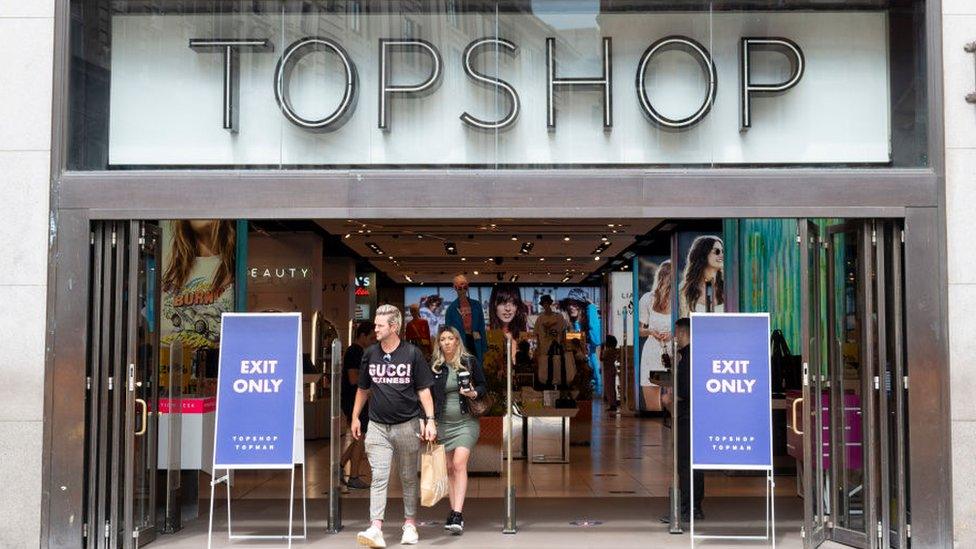
- Published21 February 2020
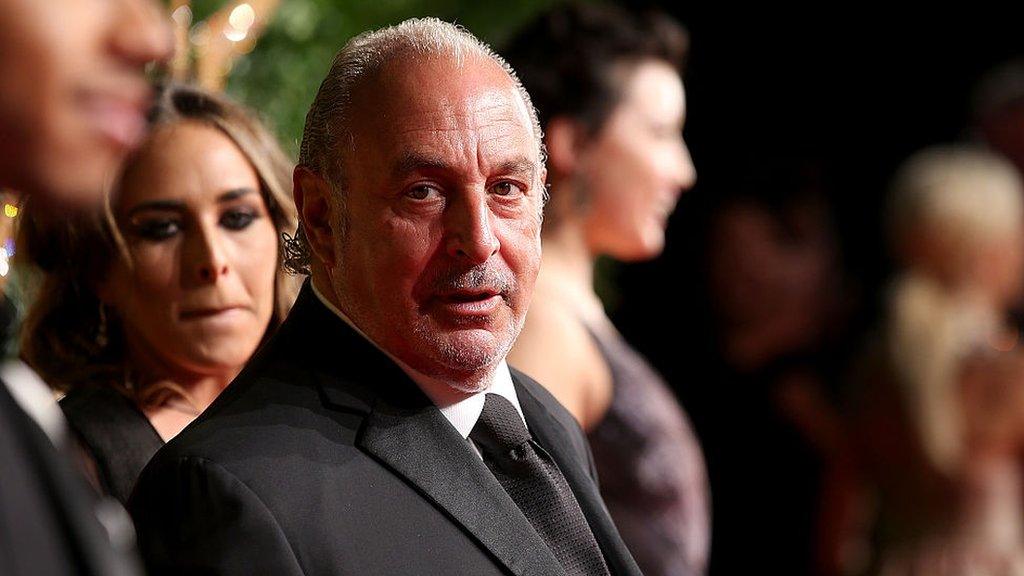
- Published12 March 2015
